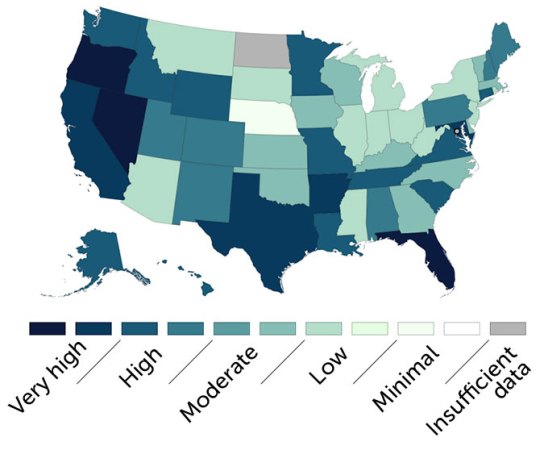Take our AI survey
Scientific news has partnered with Trusting News to gather feedback on the potential use of AI in journalism. Currently, we do not publish any content produced by generative AI (see our policy). We want to hear your views on how Scientific news can use AI responsibly. Tell us by taking a short 10-question survey.
“This is an endemic virus that really can’t be avoided if you’re going to interact with people,” says Amesh Adalja, an infectious disease physician and senior researcher at the Johns Hopkins Bloomberg School of Public Health.
COVID-19 has become less severe thanks to immunity from vaccines and previous infections and treatments for the virus, says Adalja. Unlike previous summer waves, this one is not overwhelming hospitals.
Sewage surveillance data — one of the only ways to measure the spread of the virus — show that viral variants are increasing across the United States, particularly in western states and in countries that had mild winter seasons. And the variants circulating now are “incredibly infectious,” says Schaffner.
A growing variant is a great-great-grandson of omicron called KP.3.1.1. Like other omicron offspring, it has multiple mutations in the yeast protein, including one that helps it avoid antibodies produced after an infection with the latest variants or immunization with one of last fall’s versions of the vaccines, researchers report July 17 in a preprint posted to bioRxiv. .org.
The surge in infections is likely to last until August, Schaffner says, but there are things people can do to avoid getting sick.
How to avoid getting COVID-19
Take care of your immunity by getting vaccinated against the coronavirus, advises Schaffner. This is especially important for older people and people with medical conditions such as diabetes that put them at higher risk for serious illness. About 6.6 percent of adults in the United States are immunocompromised, researchers reported in JAMA in February. Those people are especially vulnerable, says Schaffner.

Immunity from last year’s vaccination may have faded. The U.S. Centers for Disease Control and Prevention says people at high risk, especially people 65 and older, should consider getting vaccinated now and then getting updated vaccines in the fall. Vaccines are good for preventing serious illness and hospitalization, but current ones are not effective at blocking infection, says Adalja. Vaccination can also help prevent long-term COVID (SN: 17.7.24).
You can also wear an N-95 or KN-95 mask. “And you have to get them right,” says Schaffner. “Wearing them under your nose or on your forehead … doesn’t help at all.”
People in high-risk groups, such as those who are immunocompromised, can receive a monoclonal antibody called Pemgarda to help protect against infection, Adalja says.
What to do if you get sick
If you’re sick now, get tested to see if it’s COVID-19, but don’t be too quick to dismiss the possibility if the result is negative. A negative test could mean that the immune system is keeping the coronavirus under control or that you have come down with another disease, says Adalja. A second test at home or a PCR test at the doctor’s office may give a clearer answer.
Isolate until you feel better and have been fever-free for at least 24 hours, the CDC advised in updated guidance issued in March. This applies to any respiratory disease. Some people with COVID-19 never develop a fever, so they should use good judgment to decide when it’s safe to go out, Schaffner says. The CDC advises exercising caution for at least five days after symptoms improve and wearing a mask when interacting with others.
Good judgment also helps here, says Schaffner. Think about who you will see and how long you will be in a closed space with them. Maybe put off visiting grandma in the nursing home and playing poker for hours and take a walk outside instead, he says.
People in high-risk groups may benefit from taking antiviral drugs such as Paxlovid or molnupiravir. Paxlovid shaved just one day off the duration of illness for vaccinated people, a result that was not statistically significant, researchers reported April 4 in New England Journal of Medicine. Some studies suggest that Paxlovid may help prevent long-term COVID, but others have found that it does not help (SN: 31/3/23).
COVID-19 is not going away, says Adalja. There will always be new variants that cause new rounds of infection, but “medicine and science have given us an incredible amount of tools to deal with this virus, more than any other respiratory virus.”
#stay #healthy #summer #COVID19 #surge
Image Source : www.sciencenews.org
